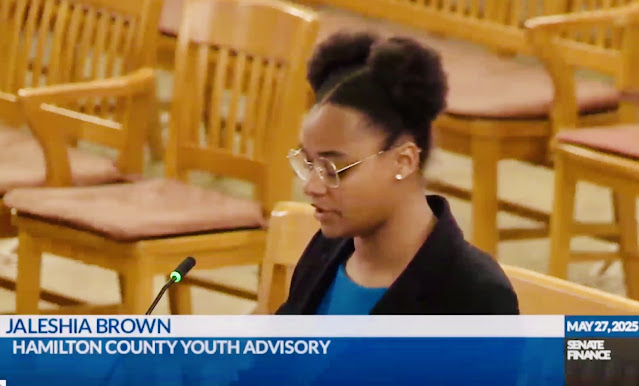Foster child scholarship pitched for budget inclusion
Gongwer News Service-Ohio, Friday, May 16, 2025
Advocates are pushing for placement of a long-discussed plan to provide financial aid to former foster children in the Fiscal Year 2026-2027 state operating budget.
Adam Hassan, a former foster child and Columbus State Community College student, urged the Senate Higher Education Committee on Thursday to include legislation (SB 13 ) establishing the Foster-to College Scholarship program in the spending outline (HB 96 ).
Hassan said he has seen students with similar backgrounds pause their education for long stretches of time or abandon it shortly before attaining a degree based on a lack of financial resources and family support.
"As someone who is a foster care alumni and is engaged with the foster care community, I am a firsthand witness to the variety of struggles that we face when seeking to better ourselves and our futures through higher academia," he said. "Financial security is a crucial component for foster care alumni."
The legislation backed for budget inclusion, which is being sponsored by Sen. Michele Reynolds (R-Canal Winchester) for the second consecutive session, includes a $7.5 million annual appropriation for the scholarship program.
Awards from the financial aid program would be available to Ohio residents who have been accepted at an institution of higher education and who were placed in foster or noncertified kinship care on or after their 13th birthday.
Reynolds' bill (SB 182 of 2023) received three hearings last session, while a House companion measure (HB 164 of 2023) cleared that body before stalling in the upper chamber. Rep. Dontavius Jarrells (D-Columbus) is again leading companion legislation (HB 25 ) in the House this session.
Kim Eckhart said Connecticut has been offering scholarships for foster youth since 1968 and paid for her mother to attend Marietta College. She said the last dollar financial aid program – meaning one intended to cover the gap between the full cost of higher education and existing federal and state scholarships – would not be exorbitantly expensive for the state.
"This is not as costly as it sounds because there is already a patchwork of aid available to students from federal, state and private sources," she said. "Tuition waivers knit together this patchwork so that students do not have to navigate complex financial aid processes on their own."
Asked by Sen. Bill Reineke (R-Tiffin) whether the scholarship could be used for housing, Eckhart said it could be used for room and board and other expenses beyond tuition.
Eckhart said Reynolds has been helping advocates of the scholarship draft budget language when asked by Sen. Kyle Koehler (R-Springfield) if they have a proposed amendment to offer.
Sen. Catherine Ingram (D-Cincinnati) questioned whether creating a new scholarship program for foster youth when some policymakers have been focused on eliminating financial aid for "separate groups of people."
Eckhart said she has saved over the years to provide for her child's college education. "I would say that the state can also do that as well," she said, noting foster children are considered "wards of the state."
Ingram said the state needs to do a better job ensuring foster youth are aware of the existing resources available to them in the years approaching emancipation. "It's the system that needs to be fixed, too," she said.
Eckhart said advocates of the scholarship heard similar concerns in the House, adding that SB16 would require the Department of Higher Education to facilitate the employment of four full-time foster care student navigators to help direct individuals to available forms of aid.
*Gabriella Craft, who was not quoted in the article, is a foster care alumna who has helped former foster youth navigate higher education at Columbus State Community College and The Ohio State University.





















